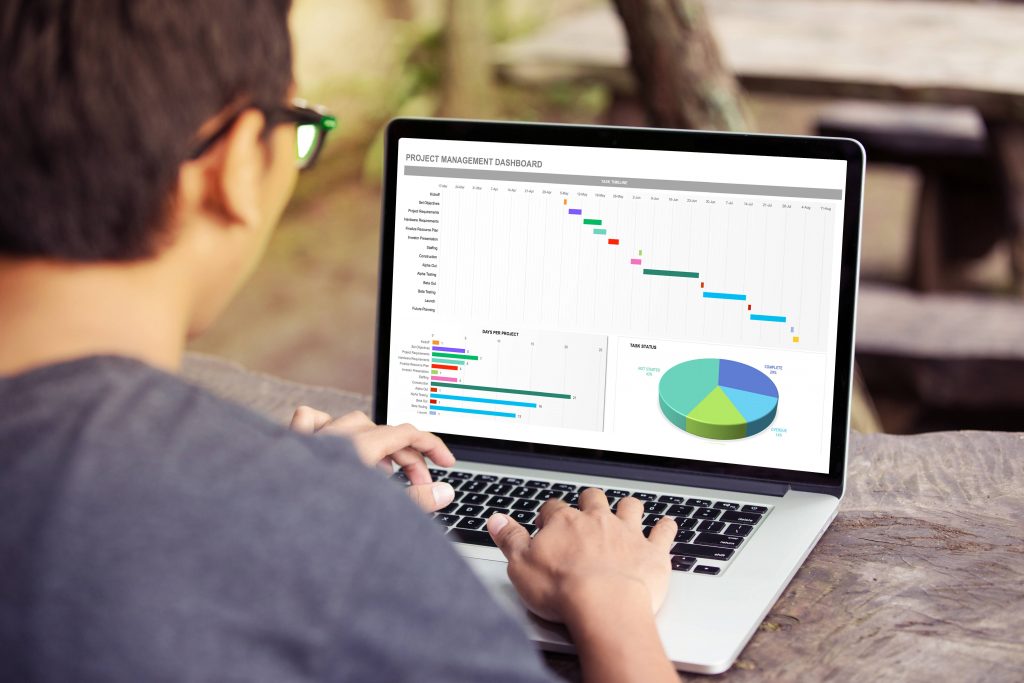Did you ever thought about how to audit your social media sites?
Did you ever thought about how to audit your social media sites?

Our journey today in this article will be about How to audit your social media sites and getting to know your visitors and followers traffic, but first let’s define what exactly is social media management, Merkai describes social media auditing as follows:
“The process of reviewing your business metrics to assess growth, opportunities, and what can be done to improve your social presence”
Merkai
So how to audit your social media sites? and why?
Well, the main reasons to do a social media check is knowing the following three things:
- How many followers do I gain each month?
- Do my followers interact with my content?
- Do I earn or lose money from my social media strategy?
- Why are these social media metrics important?
- How to make social media management?

social media management for everyone
Well, the first two metrics (follower growth, engagement rate) will tell you whether or not the content you produce is valuable to your audience or not.
Depending on the nature of your business, “value” will mean different things, this is because it depends on what your target audience thinks is useful to get from you.
For example: free sample volume products, free trials of your service, helpful advice or information that enables your audience to get something done or something as simple as entertainment, like Is your content funny?
Here, determining the most shared social media posts (likes and comments) will tell you what your audience likes to see from you the most.
Understanding this type of information is useful for you to get to know it and apply for it in all areas, not just in social media marketing campaigns, and it is also important to create all Your content and ads with your target audience in mind.
The final metric we talked about is, Do I earn or lose money from my social media strategy? It may not need an explanation as to why it is necessary, but, you’d be surprised how many people actually fail to measure this!
If you are already investing money or time in a social media marketing strategy, you need to consult the MERKAI team to find out how it will pay off, then the question now is how do I audit my social media via MERKAI?
Well, we will show you two important methods: If you are using a scheduling platform like: social report, Hootsuite etc., they often come with their analytics built in for you to look at.
But let’s say you don’t have a social media scheduler or analytics software. What can you do? You can always check the social media platform itself for analytics with a dedicated team that carefully tracks these details.

Let’s take a look at what social media platforms offer for analytics and how to use these analytics for social media platforms
Let’s start by looking at our Instagram account as an example.
Since we are a business account, we see the option to view statistics on our profile page, it will give us an overview of the account and Instagram metrics for your review, and we can switch between viewing the last 7 days and the last 30 days.
It shows us which accounts have been accessed, content interactions, you can delve deeper into looking at your audience and shared content, in audience analytics, and you can also learn more about their demographics, the hours or days of the week they are most active on the app, and more.
In the shared analyzes of your content, you can filter to see the most shared posts within a certain timeframe, and you can filter by likes, access, impressions, and much more, and you can also filter by videos, images, carousels, etc.
and you can also see analyzes of individual posts from By clicking on any post and clicking on View Insights, likewise.
you’ll see that all other social media platforms have their own built-in analytics dashboards for businesses.

This is where you can find all the information, and now what do you do with it? How do you conduct a social media audit using these social media KPIs?
If you have several tips on using metrics for social media auditing, using an excel sheet or google sheet and a calculator, or you may not even need a calculator
if you are a professional with Excel sheet formulas, what you need to do is start entering your metrics for each Platform, every month.
Then, over time, you can start to calculate how many followers you typically gain per month on average, if your engagement rate is increasing or decreasing ……. etc.
studying these numbers over time will tell you whether what you are currently doing is producing. Desired results or not.
You can do the same with your ad spend, as some social media advertising platforms are more advanced than others, but at least you should be able to see how much you have spent on engagement, leads, conversions, etc.
The only trick to tracking revenue from social media ad platforms is that you have to set up conversion tracking first, if we assume that your ad account has been set up correctly.
your ad account will show you the money that was spent in exchange for the money collected from any particular campaign.
Guessing from wondering whether or not what you do on social media is paying off, don’t worry we at Mercury are ready to get you in touch and help you.

Now the last piece of advice we will share before you do anything, what you need to do first in setting your goals on social media, why are you checking?
Here at Merkai, we typically look at follower growth, engagement rate, and return on ad spend (which means return on ad spend).
but you need to first define what is important to you, say additional social media metrics to track, times when you post your posts (what Which days and times are performing best?)
Video Views (What is CPV? What are the best performing videos?), Link clicks from your social media pages to your website (What is CTR?), Number of Tags Or the mentions you get (how many people are tagging your account in their posts?)
And some of the things that are less obvious for the review may be less about metrics and more about quality. Here are some examples:
- Are all my posts posted correctly and as planned for this month?
- Are we seeing a lot of grammatical and spelling errors in our content?
- Are all comments and direct messages we receive answered correctly and in a timely manner?
- Are the comments we receive positive or negative?
- Is the CV of our profile filled out appropriately?
- Do all links on my social media page work?
- Are all of my social media pages consistent and united under one brand?

Again, you will want to decide what you want to audit on your social media based on your specific goals, but in general, a social media audit helps you identify areas of opportunity, as doing a social media audit gives you a better insight into what you need to change in order. Achieve your goals.
Quick recap, be certain that the common metrics used to management your social media are follower growth, engagement rate, and return on ad spend.
You can use a third-party analytics program to track your data or use the analytics available within the social media platforms themselves, and the additional metrics that you can. Tracking them based on your social media goals is engagement and metrics related to quality and in conclusion we hope this post answered your question on how to do an audit on social media.


